What I Wish I Knew When I Started Brazilian Jiu-Jitsu
Table of Contents
- Introduction
- The Importance of Consistency
- Embrace the Learning Process
- Understanding the Importance of Positional Dominance
- Developing Your Defensive Skills
- The Value of Proper Breathing Techniques
- The Role of Strength and Conditioning
- The Mental Aspect: Patience and Resilience
- Learning from Mistakes and Setbacks
- Finding the Right Training Partners
- Conclusion
Introduction
Embarking on a journey into the world of Brazilian Jiu-Jitsu (BJJ) is an exhilarating experience filled with challenges and rewards. As a beginner, it’s natural to encounter various obstacles and uncertainties along the way. Reflecting on my own journey, there are several key insights and lessons that I wish I had known when I first started practicing BJJ. In this comprehensive guide, I’ll delve into these valuable lessons and share practical tips to help fellow practitioners navigate their BJJ journey more effectively.
The Importance of Consistency
One of the fundamental principles of progress in Brazilian Jiu-Jitsu is consistency. Consistently showing up to class, drilling techniques, and rolling with training partners is essential for improvement. Establishing a regular training schedule and sticking to it, even on days when motivation is lacking, is key to developing skills and building muscle memory. Consistency breeds progress and lays the foundation for long-term success in BJJ.
Embrace the Learning Process
Entering the world of Brazilian Jiu-Jitsu can be overwhelming, especially for beginners. It’s essential to adopt a growth mindset and embrace the learning process fully. Understand that progress in BJJ is gradual, and mastering techniques takes time and dedication. Instead of focusing solely on achieving quick results, prioritize learning and growth. Celebrate small victories along the way and view setbacks as opportunities for learning and improvement.
Understanding the Importance of Positional Dominance
In Brazilian Jiu-Jitsu, positional dominance plays a crucial role in determining the outcome of a match. Learning to establish and maintain dominant positions, such as mount, back control, and side control, is essential for controlling your opponent and executing submissions effectively. Understanding the hierarchy of positions and learning how to transition between them fluidly is key to becoming a well-rounded BJJ practitioner.
Developing Your Defensive Skills
While offensive techniques are undoubtedly important in Brazilian Jiu-Jitsu, developing strong defensive skills is equally crucial. Learning how to defend against various attacks and submissions is essential for survival on the mat. Focus on mastering fundamental escapes and counters, such as bridging and shrimping, to nullify your opponent’s offense and regain control of the match. By prioritizing defense, you’ll become a more well-rounded and resilient grappler.
The Value of Proper Breathing Techniques
Breathing is often overlooked in Brazilian Jiu-Jitsu, yet it plays a significant role in performance and endurance. Proper breathing techniques can help you conserve energy, stay calm under pressure, and maintain focus during intense grappling exchanges. Practice deep diaphragmatic breathing and learn to control your breath throughout training sessions and matches. By mastering your breathing, you’ll enhance your overall performance on the mat.
The Role of Strength and Conditioning
While technique reigns supreme in Brazilian Jiu-Jitsu, strength and conditioning are also essential components of success. Developing functional strength and cardiovascular endurance can enhance your physical capabilities and resilience on the mat. Incorporate strength training exercises, such as squats, deadlifts, and pull-ups, into your workout routine to build a solid foundation of strength. Additionally, focus on improving your cardiovascular fitness through activities like running, cycling, or swimming to increase your stamina and endurance during matches.
The Mental Aspect: Patience and Resilience
Brazilian Jiu-Jitsu is as much a mental game as it is a physical one. Cultivating mental toughness, patience, and resilience is essential for success in BJJ. Understand that progress may be slow at times, and setbacks are inevitable. Learn to embrace the grind, stay focused on your goals, and remain resilient in the face of adversity. Developing a strong mindset will not only benefit you on the mat but also in other areas of your life.
Learning from Mistakes and Setbacks
In Brazilian Jiu-Jitsu, every mistake is an opportunity for learning and growth. Instead of dwelling on failures or setbacks, use them as valuable learning experiences. Analyze your matches and training sessions objectively, identify areas for improvement, and work diligently to address weaknesses. Embrace the process of trial and error, and don’t be afraid to experiment with new techniques or strategies. By learning from your mistakes, you’ll become a more skilled and adaptable grappler over time.
Finding the Right Training Partners
Training partners play a significant role in your development as a Brazilian Jiu-Jitsu practitioner. Surround yourself with individuals who are supportive, knowledgeable, and committed to mutual growth. Seek out training partners who challenge you both physically and mentally, pushing you to expand your skill set and refine your techniques. Additionally, cultivate a culture of respect, camaraderie, and sportsmanship within your training environment. By fostering positive relationships with your training partners, you’ll create an environment conducive to learning and development.
Absolutely! If you’re keen to delve deeper into the world of Brazilian Jiu Jitsu, feel free to explore this comprehensive article: Brazilian Jiu Jitsu
Conclusion
Embarking on a Brazilian Jiu-Jitsu journey is a transformative experience filled with challenges, triumphs, and invaluable lessons. By embracing the principles of consistency, growth mindset, and resilience, you can navigate your BJJ journey more effectively and maximize your potential on and off the mat. Remember that progress in BJJ is a marathon, not a sprint, and prioritize learning, growth, and self-improvement every step of the way. With dedication, perseverance, and a passion for the art, you can unlock the full potential of Brazilian Jiu-Jitsu and embark on a fulfilling and rewarding journey of personal development.
FAQs About Brazilian Jiu-Jitsu Journey
Q1. How long does it take to see progress in Brazilian Jiu-Jitsu?
A: Progress in Brazilian Jiu-Jitsu varies depending on factors like training frequency, consistency, and individual aptitude. Generally, beginners may notice improvements in basic techniques within a few months of consistent training. However, significant progress and mastery of more advanced skills typically require several years of dedicated practice.
Q2. Is Brazilian Jiu-Jitsu suitable for beginners with no prior martial arts experience?
A: Yes, Brazilian Jiu-Jitsu is suitable for beginners of all fitness levels and martial arts backgrounds. Classes are typically structured to accommodate students with no prior experience, focusing on fundamental techniques, movements, and concepts. Instructors often provide individualized guidance and support to help beginners feel comfortable and progress at their own pace.
Q3. What should I expect during my first Brazilian Jiu-Jitsu class?
A: During your first Brazilian Jiu-Jitsu class, you can expect to learn basic techniques such as posture, movement, and simple submissions. You’ll also participate in drills and exercises designed to improve coordination, balance, and body awareness. Don’t worry if you feel overwhelmed or confused—it’s normal for beginners to feel this way, and instructors are there to assist you every step of the way.
Q4. How often should I train Brazilian Jiu-Jitsu to see progress?
A: The frequency of training depends on your schedule, goals, and personal preferences. Ideally, aim to train Brazilian Jiu-Jitsu at least two to three times per week to see steady progress. Consistency is key, so try to establish a regular training routine that works for you. However, avoid overtraining and listen to your body to prevent burnout or injuries.
Q5. What should I wear to my first Brazilian Jiu-Jitsu class?
A: For your first Brazilian Jiu-Jitsu class, wear comfortable athletic clothing such as a T-shirt and athletic shorts or leggings. Avoid wearing clothing with zippers, buttons, or pockets, as they can cause discomfort or injury during grappling. Most Brazilian Jiu-Jitsu academies provide loaner uniforms (gi) for beginners to borrow until they purchase their own.
Q6. Is Brazilian Jiu-Jitsu suitable for people of all ages?
A: Yes, Brazilian Jiu-Jitsu is suitable for people of all ages, from children to seniors. Classes are often divided by age group and skill level to provide tailored instruction and ensure a safe training environment for everyone. Whether you’re a young child looking to build confidence and discipline or an older adult seeking a fun and effective workout, Brazilian Jiu-Jitsu offers benefits for people of all ages and fitness levels.

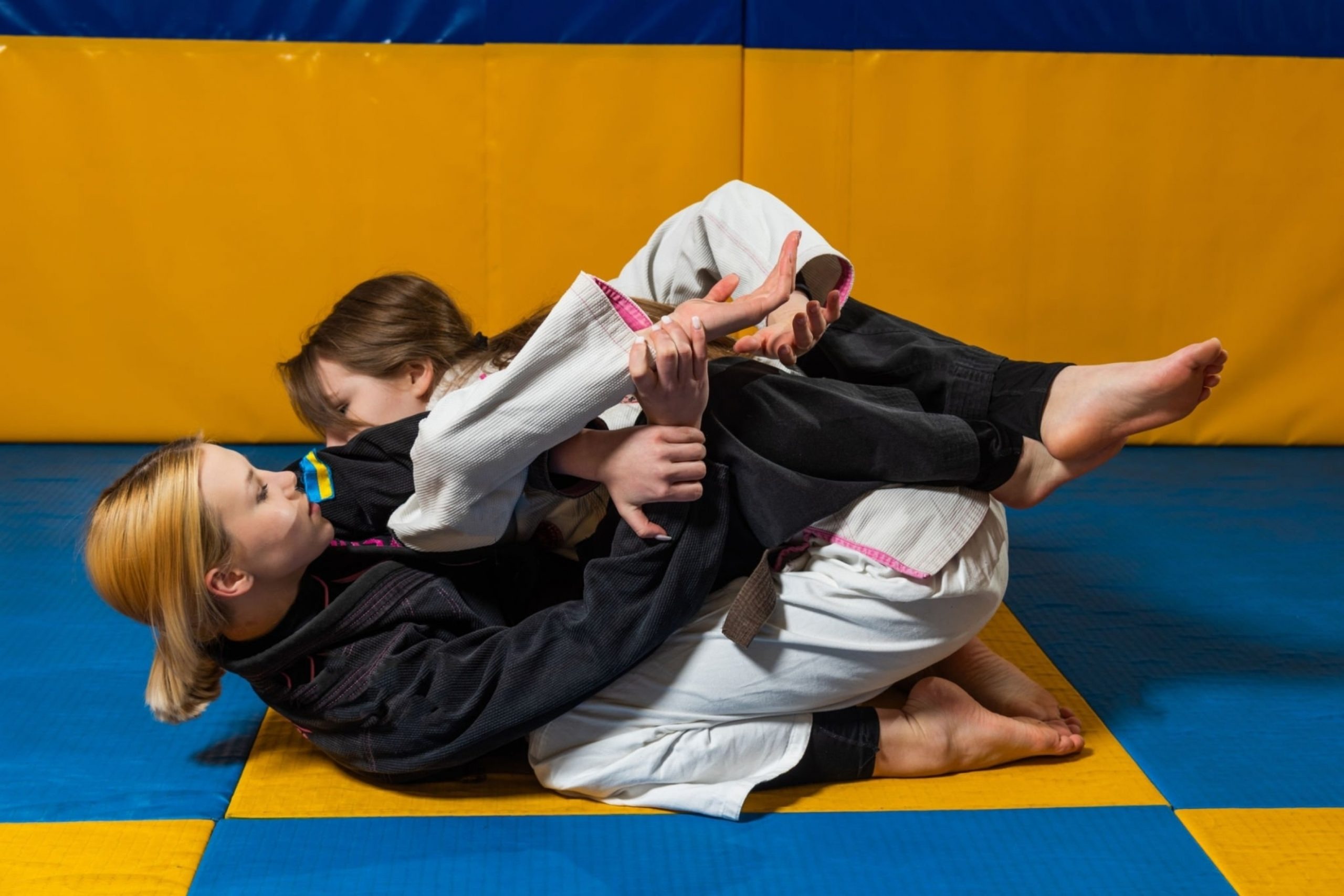

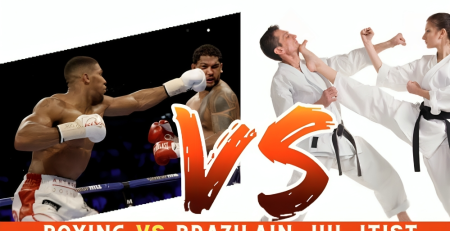
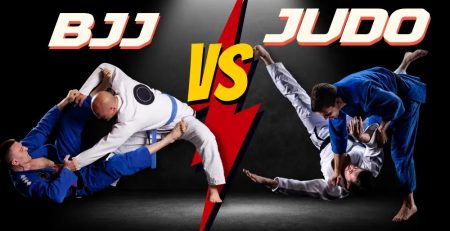
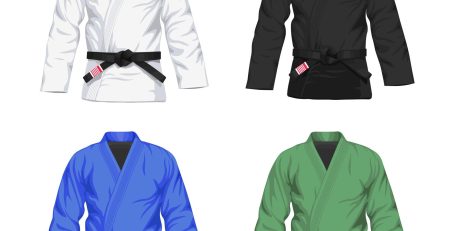

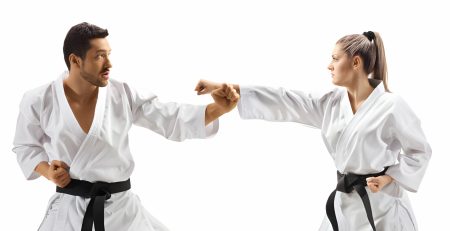



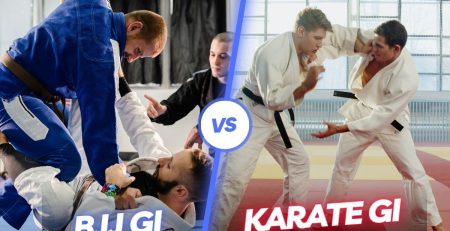
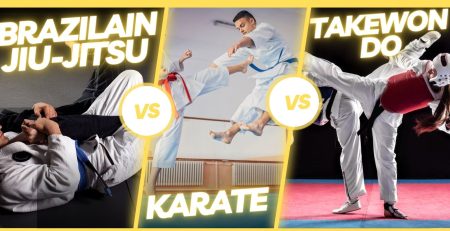

Leave a Reply
You must be logged in to post a comment.